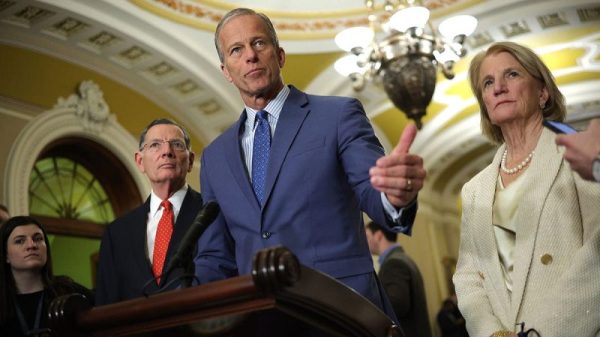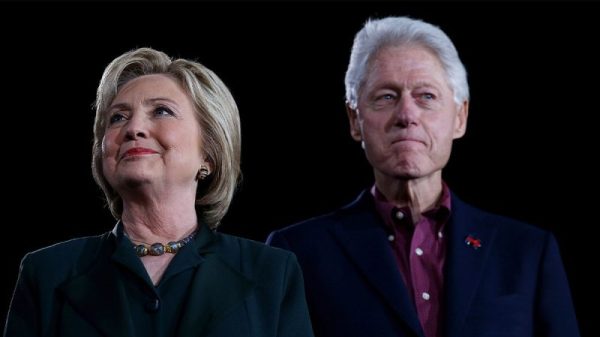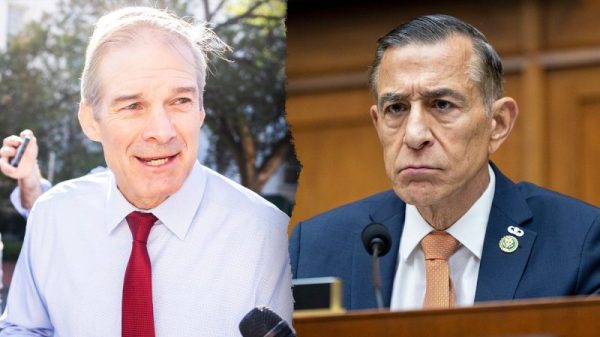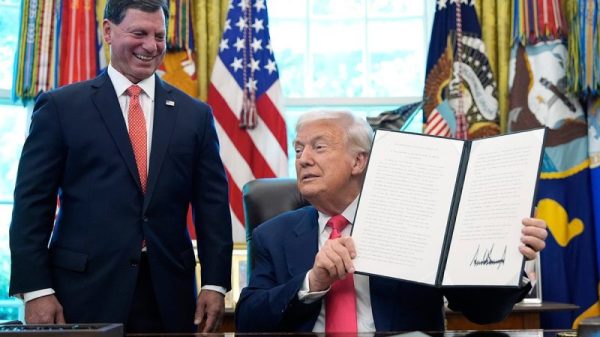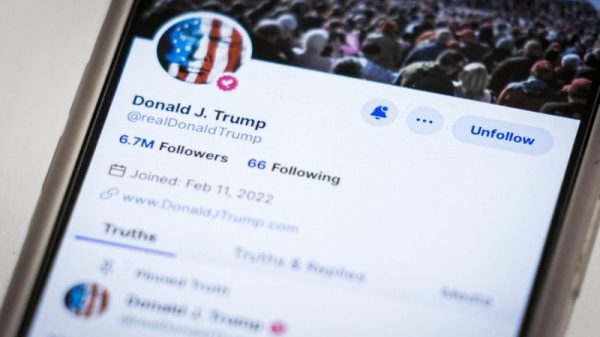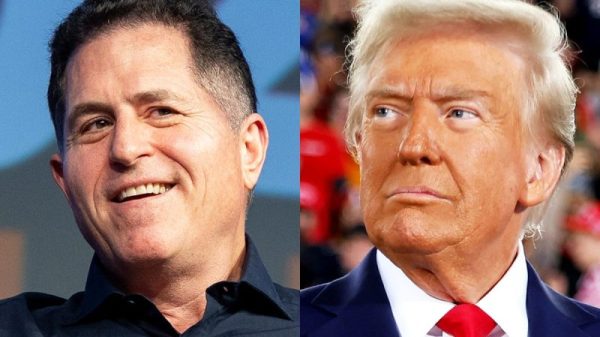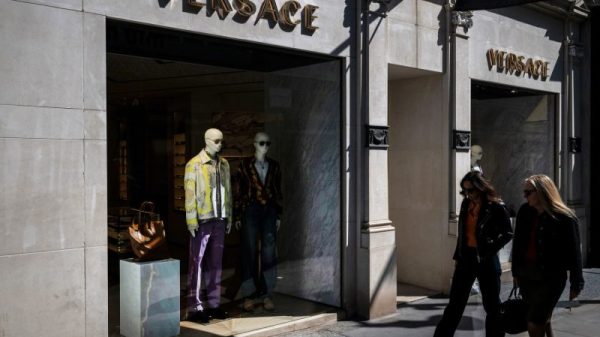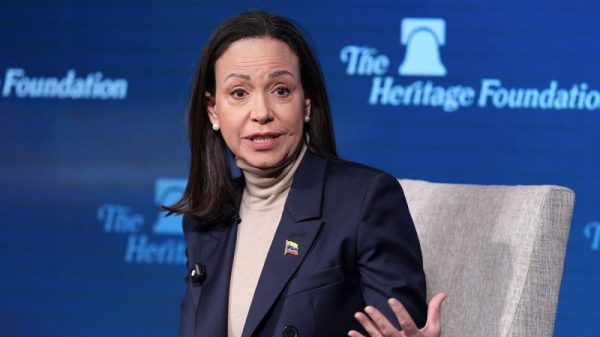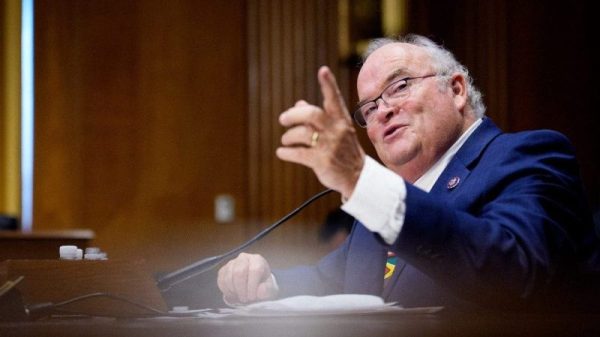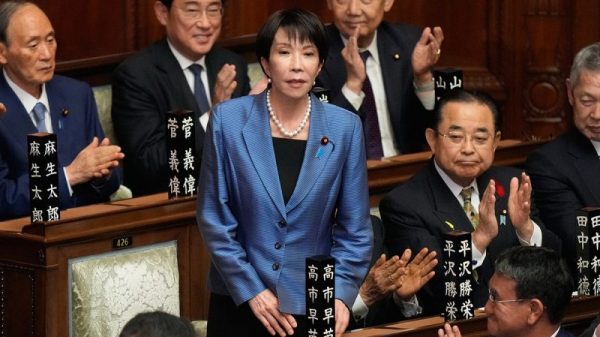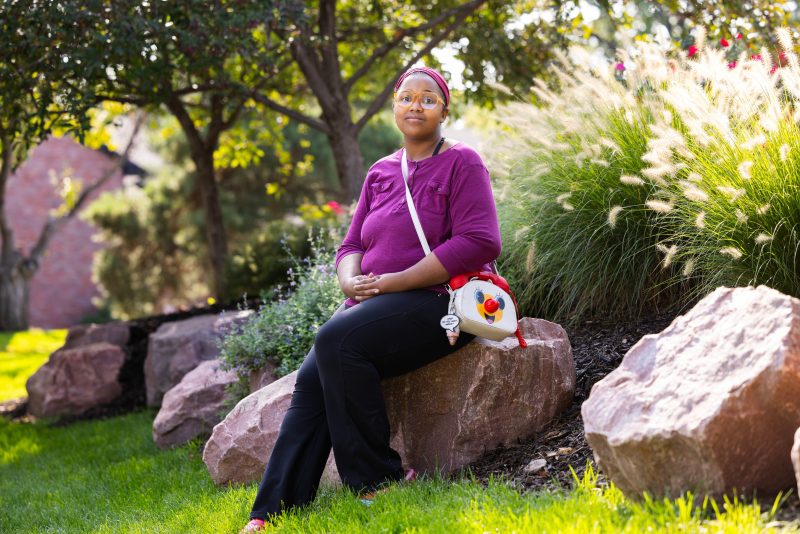Avalon Broaden didn’t vote in 2020, unmotivated by a pair of older male candidates that she felt didn’t really represent her values. Her feelings remained the same this year — until the race was upended in July and Vice President Kamala Harris became the Democratic nominee.
“She’s a woman, she’s Black, and I like her. I genuinely think that means something for this country,” said Broaden, 24, a beauty adviser and freelance artist from Omaha. “I’d rather vote for something I strongly believe in rather than voting in spite of someone.”
So when Broaden was recently filling out her Medicaid renewal form, she checked the box that would also register her to vote — and plans to cast a ballot for Harris in November.
A Washington Post-Ipsos poll finds that the commitment of Black Americans like Broaden to vote this fall has rebounded since Harris replaced President Joe Biden as the Democratic nominee, with Black voters unifying around her candidacy despite lukewarm ratings of Biden’s presidency.
The Post-Ipsos poll of 1,083 Black Americans finds that 69 percent say they are “absolutely certain to vote” in November, up from 62 percent in April, albeit still lower than 74 percent in June 2020.
That increase is important for Harris, as she tries to rebuild the multicultural coalition that put Barack Obama in office in 2008 and Biden in 2020. It also mirrors other polls showing that she has gained ground among Black voters in the last two months. Her gains have been more pronounced among Black Americans than the general public, but she has also seen growing support from Americans writ large.
The increased engagement among a critical Democratic constituency is concentrated among younger Black Americans, especially younger women, who were less enthusiastic about voting this spring.
The share of Black people under 30 years old saying they are certain to vote this fall is up 15 percentage points from April — to 47 percent — and among Black women under 40, turnout interest is up 18 points to 57 percent. Turnout interest among younger Black men also rose, from 43 percent to 51 percent.
Among Black registered voters, 82 percent say they will “definitely” or “probably” vote for Harris this November, up from 74 percent who said they would support Biden in April, albeit still shy of Biden’s 87 percent mark among Black voters according to 2020 national exit polling. The share saying they would “definitely” vote for the Democratic candidate is up from 48 percent for Biden this spring to 68 percent for Harris today.
A 77 percent majority of Black voters under age 30 say they would support Harris if the election were held today, up from 59 percent who said they would support Biden in April. Among Black women under age 40, Harris’s support has grown by 19 points over Biden’s, from 57 percent to 76 percent.
Harris’s support is even stronger among other segments of the Black electorate, including 80 percent support among Black men overall and 84 percent among Black women, 86 percent among Black voters ages 40 and older; 86 percent among those with at least a bachelor’s degree; and 81 percent among those with less formal education.
The Post-Ipsos poll, conducted before Tuesday’s debate between Harris and Republican nominee Donald Trump, reflects how much Biden’s exit and Harris’s ascendancy transformed the presidential race. The two candidates are in the midst of a two-month sprint to the Nov. 5 election, and further gains or losses with key voting blocs will be crucial in a toss-up contest.
Azaria Shaw, a facilities manager from Durham, N.C., didn’t watch the debate between Joe Biden and Donald Trump — she has a small child, and a 9 p.m. start time is generally a nonstarter. But the clips she saw afterward left her devastated. She voted for Biden in 2020 to kick Trump out of the White House; after the debate, she felt he was headed right back. She spent the next three weeks furious, half-joking with her friends that she was getting her family’s passports in order.
“I was terrified. I was angry with the Democrats. I didn’t understand why they didn’t have the foresight to see this was going to happen. Meanwhile, the Republicans are over there writing manifestos,” said Shaw, who is Black and who planned to vote for Biden again in 2024, if dejectedly.
But when Harris became the nominee, Shaw said she breathed a sigh of relief. She’s put away the passports and picked up a pen — and spends a few nights a week writing letters encouraging people to vote for Harris.
“I’ve never been involved like this,” she said, not even for Biden. “But now I feel super positive. I do have some hope.”
The share of Black voters saying they would definitely or probably vote for Trump (12 percent) has barely shifted from April when 14 percent said they would support the former president, though that is still slightly higher than he received in 2020. Third-party support has plummeted since April, with support for Cornel West dropping from 14 percent to 5 percent and support for Green Party candidate Jill Stein down from 9 percent to 4 percent. Neither Trump nor third-party candidates have benefited from Robert F. Kennedy Jr. dropping out, despite 20 percent of Black voters saying they would probably vote for him in April.
Lafayette Cates, 42, a software engineer from Philadelphia, said he voted for Trump in 2020 and plans to do so this year, because he feels that Harris doesn’t fully understand the needs of Black Americans who are descendants of enslaved people. Harris’s father was born in Jamaica; her mother was from India.
“She doesn’t come from a background similar to the majority of Black Americans, so I don’t think she can be an effective leader,” he said. “She doesn’t face what the majority of African Americans face.”
Black Americans have become sharply more positive toward Harris since she became the party’s standard-bearer. A 72 percent majority of Black Americans have a favorable view of Harris, up from 59 percent in April. Now, nearly half (48 percent) are “very favorable” of the vice president, up from 28 percent five months ago.
About 7 in 10 Black Americans say it is important that Harris become the first female president, including 75 percent of Black women and 67 percent of Black men.
“I think it’s a step forward to have a Black woman represented,” said Teandre Meehan, 27, an attorney from St. Louis. “But I also think Kamala Harris will enact policies that she believes will favor African Americans. I think she understands the plight of African Americans and the ways they’ve been left behind.”
In addition, nearly two-thirds of Black Americans (64 percent) say Harris becoming the second Black president and first president of Asian descent is important, including three-quarters of Black people ages 65 and older (75 percent).
Harris has higher expectations on her ability to help Black people if she is elected president. About 6 in 10 Black Americans (59 percent) say her policies would help Black people if she were elected. That’s higher than the 48 percent who say Biden’s policies have helped Black people, although that figure is up from 38 percent in April.
Both Harris and Biden rank higher than Trump: Just 11 percent say Trump’s policies would help Black people if he were elected again, similar to the 13 percent who say he helped Black people when he was in office. Two-thirds predict another Trump presidency would hurt Black people.
Two-thirds of Black Americans approve of how Biden is handling his job as president (66 percent), while about one-third disapprove (32 percent).
While Harris’s popularity has grown, Black voters continue to see Trump in a starkly negative light. About 8 in 10 Black Americans have an unfavorable view of Trump and roughly 6 in 10 say they’d be “upset” if he won the election. Three-quarters say Trump is biased against Black people and a similarly large majority say he is biased against women.
Black Americans trust Harris more than Trump to handle a wide range of issues, often by significantly larger margins than Biden held this spring.
For example, in April, Black Americans trusted Biden over Trump to handle the economy by 50 percent to 16 percent, today Harris leads Trump by 60 percent to 15 percent on this issue. Biden enjoyed a 45-point margin over Trump in April on trust to handle abortion, which has grown to a 63-point margin for Harris in August. Her smallest advantage is on handling the war between Israel and Hamas — 36 points — and it’s only slightly bigger than Biden’s 31-point advantage over Trump in April.
Harris also enjoys a 59-point margin over Trump on trust to protect American democracy among Black Americans, an issue that was not measured in the previous poll.
Nearly 9 in 10 Black Americans say Harris, 59, is in good enough physical health to serve effectively as president compared with a quarter who say the same for the 78-year-old Trump. About 8 in 10 say she has the mental sharpness it takes to serve as president, compared with 2 in 10 who say Trump does. Eight in 10 Black Americans say Harris is a positive role model for young people while only 1 in 10 say the same for Trump. Over 7 in 10 also say Harris cares about people like them and is honest and trustworthy — just over 1 in 10 says the same about Trump.
Harris’s running mate, Minnesota Gov. Tim Walz, enjoys positive favorable ratings among Black Americans, with 52 percent favorable and 13 percent unfavorable. Republican Sen. JD Vance is seen unfavorably by 57 percent of Black Americans, while just 10 percent view him favorably. About one-third of Black Americans say they don’t know enough about each vice-presidential candidate to form an opinion.
Obama — who sparked Democratic convention attendees to chant, “Yes, she can!” in a speech supporting Harris — enjoys the highest favorable ratings of anyone measured in this poll: 82 percent of Black Americans are favorable, including 69 percent who feel “strongly favorable” toward the former president, far above Harris’s 48 percent.
At the National Association of Black Journalists conference in July, Trump said he “didn’t know” Harris was Black “until a number of years ago when she happened to turn Black and now she wants to be known as Black. So, I don’t know, is she Indian or is she Black?”
Trump’s attempts to question Harris’s identity appear to have fallen flat or backfired with most Black people. Asked what best describes Harris’s racial or ancestral background, 65 percent say she is “both Black and Indian,” while 11 percent say she is Black, 7 percent Indian and 16 percent are not sure. Harris has long identified as both Black and South Asian.
About three-quarters of Black Americans, 75 percent, say Trump’s comments were disrespectful of Harris, including 63 percent who say his remarks were “very disrespectful.
And a similar 71 percent of Black Americans say Trump’s comments about Harris’s race were disrespectful toward Black people overall, including 59 percent who say his remarks were very disrespectful toward Black people.
More broadly, 8 in 10 Black Americans say Harris understands the experiences of Black people in America, compared with about 6 in 10 (59 percent) who say the same about Biden and 13 percent who say the same about Trump.
More than 8 in 10 Black Americans (86 percent), including the same share of men and women, say Harris understands the experiences of women in America at least somewhat well. Just 10 percent of Black people say the same of Trump, including 9 percent of Black women.
Black Americans are more likely to say Harris’s race and gender will help her chances of winning the election than hurt her. About 4 in 10 Black Americans (41 percent) say Harris being Black and Asian will make no difference to Americans’ votes. Another 36 percent say her racial identity will make Americans more likely to vote for her, and 2 in 10 (20 percent) say it will make people less likely to vote for her. Similarly, about 4 in 10 Black Americans say Harris being a woman will make people more likely to vote for her, a third say it won’t make a difference and about a quarter say it will make Americans less likely to vote for her.
Black women (46 percent) are more likely than Black men (36 percent) to say Harris being a woman will make people more likely to vote for her. But Black men are no more likely to say being a woman will hurt Harris, with nearly 4 in 10 of them saying it won’t make a difference.
Meehan, the attorney from St. Louis, said he worried Harris would face racist and misogynistic attacks, similar to assaults on Obama and 2016 Democratic nominee Hillary Clinton. But he said he’s been impressed with Harris’s ability to parry attacks rooted in race and gender.
“I think she’s been pretty effective so far at just dodging those attacks and just brushing them off,” he said. “She’s just ignoring them and not giving them any airtime or daylight. I’m sure that Kamala Harris knows that is a challenge of hers: She has to win over people that will never vote for a Black person.”
The Post-Ipsos poll was conducted Aug. 23-Sept. 3 among 1,083 non-Hispanic Black adults ages 18 and older through the Ipsos KnowledgePanel, an ongoing survey panel recruited through random sampling of U.S. households. Results among Black Americans have a margin of sampling error of plus or minus 3.2 percentage points; the error margin is 3.4 points among the sample of 924 Black registered voters.

